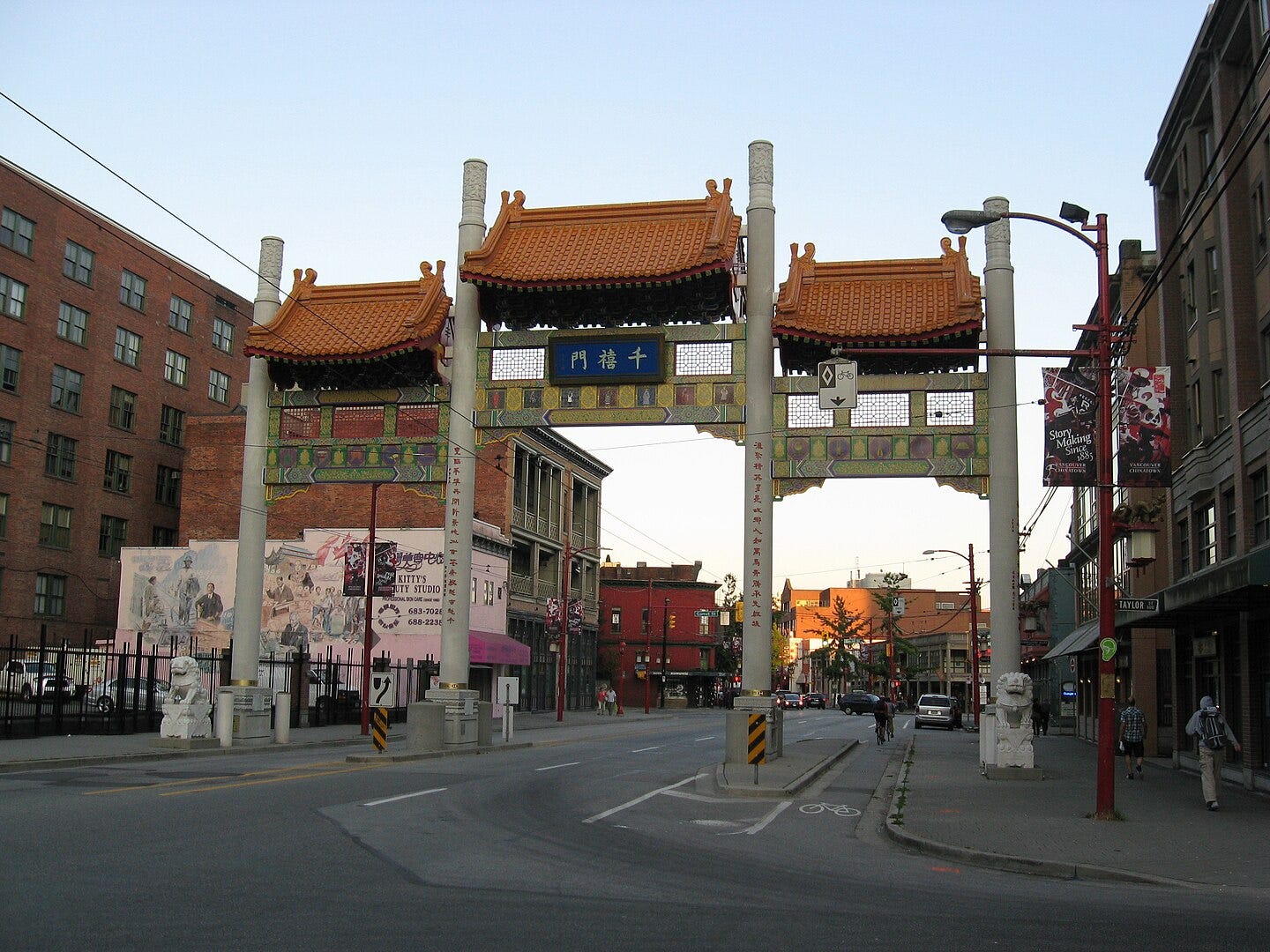Where goes Chinatown
Is Vancouver’s Chinatown doomed?
Our tour group made an unplanned last stop in Vancouver. With half a day in the city, some folks ventured out to see Chinatown. Today, Vancouver’s Chinatown has fallen on hard times. COVID shuttered its businesses. Many shops never returned. Homeless and drug addicts now inhabit the streets. It is a zombie town resembling the Tenderloin in San Francisco. My Airbnb host warned me Chinatown is a no-go part of the city.
Someone brought up an urban myth that Vancouver has the largest Chinatown. I doubt this is true. San Francisco’s Chinatown is more well known. New York’s is likely to be far larger. Statistics aside, I wonder if Chinatown is still relevant in the twenty-first century at all. Today, Chinese residences and Chinese businesses are everywhere. They are hardly confined in Chinatown. The 2010 census reports one in five residents in San Francisco are Chinese. With Chinese dispersed everywhere, is Chinatown just a nostalgic idea?
To remember how things were, we have to go back many generations. Chinese immigrants, coming to a new world unfamiliar with the language and culture, find it beneficial to settle in an ethnic enclave. There it was easier to find jobs and mutual support. Elsewhere in the city, discrimination and restrictive law was used to keep the unwelcome Chinese out. With the population confined, Chinese businesses, restaurants, groceries, and cultural institutions were established to serve them. Chinatown is formed due to confinement and social isolation.
In contrast, today’s society is far more multicultural and integrated. Chinese is no longer an exotic culture. The third or fourth generation immigrants are well integrated into mainstream society. The educated new immigrants bring skills and are far more adaptable than before. Chinese businesses, like everyone else, expand out of the urban core to the suburbs. How much money you have, rather than who you are, decide where you can live.
Today’s Chinese businesses blossomed widely. They are modern and convenient. It is no longer necessary to go to Chinatown to shop for ethnic food or go to cultural events. What is the function of Chinatown then? San Francisco has built a Chinatown partly for tourism. But even this prospect is greatly impaired by the post COVID tourist slum.
Being Chinese, I have a soft spot for Chinatown and its history. But I am afraid its future is grim. With its traditional function largely supplanted, it loses the economic resources to renew itself. The blight and urban decay, a heartbreaking sight in Vancouver but is also visible in San Francisco, further put off affluent Chinese and dim the tourism prospect.
Cities are a living organism. They are always in flux. Chinatown, once a unique and bustling enclave, is not destined to remain forever. Should I witness its demise, it will bring sorrow to my heart.


